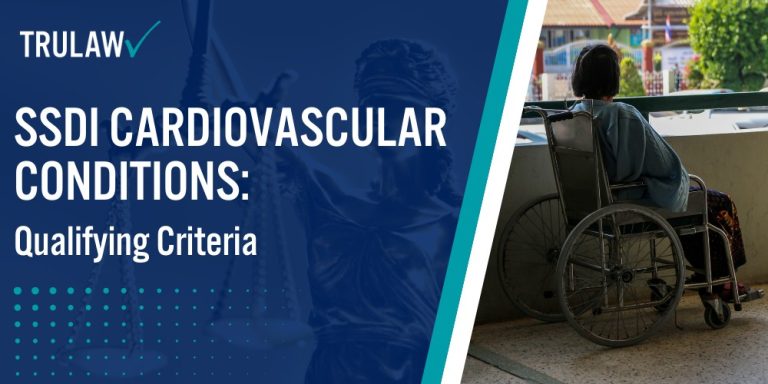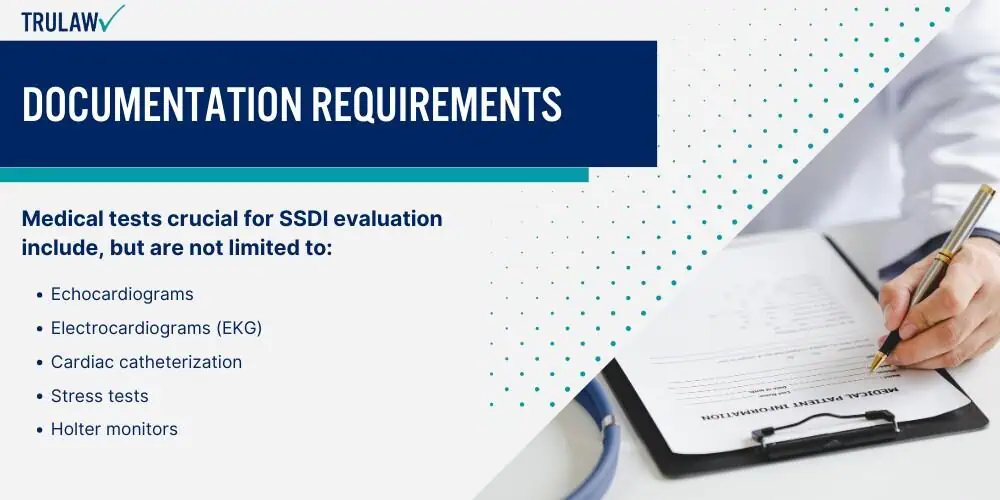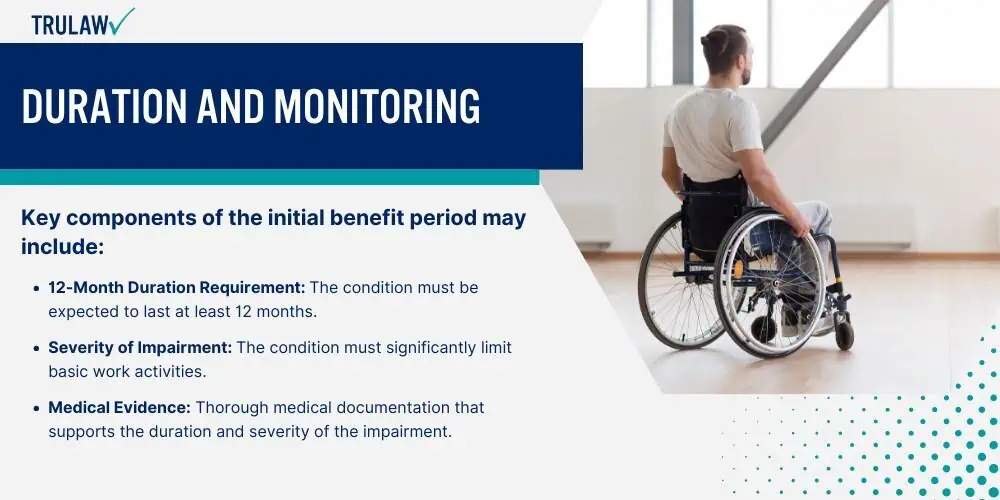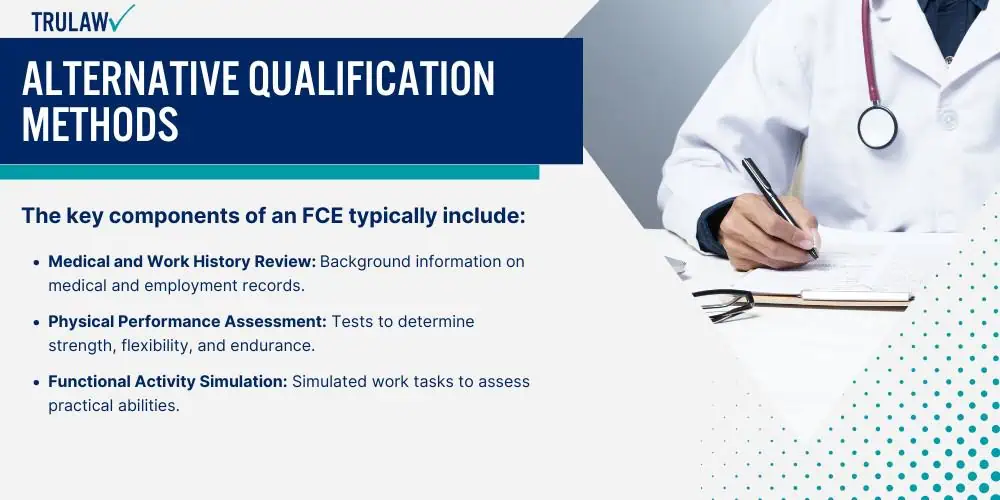To qualify for Social Security Disability Insurance (SSDI) under cardiovascular conditions, applicants must meet specific medical evaluation standards specified by the Social Security Administration’s (SSA) Blue Book.
These standards ensure that the severity of the cardiovascular impairment is adequately demonstrated through clinical evidence.
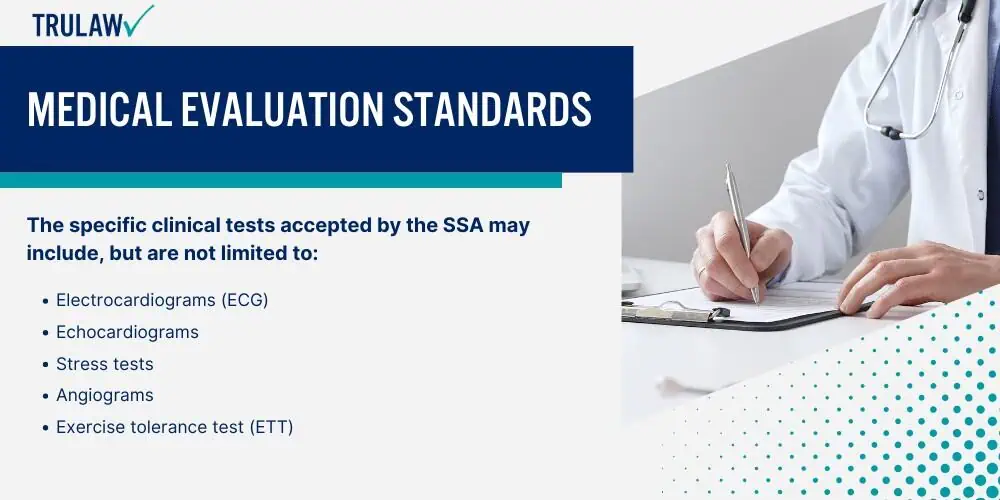
Applicants need to provide comprehensive medical documentation, which includes results from various cardiac tests and evaluations that attest to the impact of these conditions on their ability to work. This documentation should thoroughly cover the cardiovascular system, detailing how the impairments affect the individual’s daily activities and job performance.
The eligibility criteria are designed to assess both the medical condition and its functional limitations in relation to gainful employment.
Clinical Testing Requirements
The clinical testing requirements for SSDI applicants claiming disability due to cardiovascular conditions are critical in establishing the validity of the claim.
Generally, the SSA requires evidence from a variety of tests to confirm the diagnosis and severity of the cardiovascular condition.
These tests might include electrocardiograms (ECG), echocardiograms, stress tests, and potentially angiograms, depending on the specific heart condition.
The results of these tests must show significant abnormalities that align with the SSA’s criteria for the cardiovascular condition in question, as documented in their Blue Book listings.
The specific clinical tests accepted by the SSA may include, but are not limited to:
- Electrocardiograms (ECG)
- Echocardiograms
- Stress tests
- Angiograms
- Exercise tolerance test (ETT)
These tests provide objective medical evidence of the applicant’s cardiovascular health and are integral to the SSDI application process.
Without adequate and suitably conclusive test results, the SSA is unlikely to approve a disability claim for cardiovascular conditions.
Besides the tests, supporting documentation from physicians and other medical professionals is crucial.
This evidence must clearly indicate the extent to which the heart condition limits the individual’s ability to engage in substantial gainful activity.
Functional Capacity Assessment
Functional capacity assessment plays a vital role in determining the extent to which a cardiovascular condition limits an individual’s work abilities for SSDI purposes.
The SSA usually includes this step to assess whether an individual can perform past work or adapt to new employment considering their impairments.
Functional Capacity Evaluations (FCEs) and other work ability tests are commonly used to determine both the physical and cognitive limitations caused by cardiovascular diseases.
They assess the individual’s ability to perform activities such as lifting, standing, walking, and other work-related tasks.
Key elements typically evaluated in a Functional Capacity Assessment include:
- Ability to stand and walk
- Capacity to lift and carry weight
- Endurance for daily tasks
- Adaptability to new work environments
These assessments provide a comprehensive view of how the individual’s daily and work-related functions are affected by their cardiovascular condition.
By evaluating both physical and cognitive abilities, the SSA can make a more informed decision about the applicant’s capability to engage in gainful employment.
This process helps ensure that SSDI benefits are granted to those whose heart conditions genuinely preclude them from maintaining any substantial work activity.
